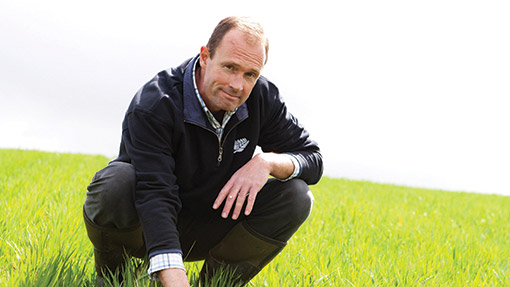Farmer Focus: Trials don’t reveal much about flea-beetle control

Thankfully my oilseed rape establishment trials haven’t yielded much information. That may sound strange, but it is due to the flea beetle pressure here being somewhat lower than slightly further north of us, where I have heard some shocking tales that will serve as more nails in the oilseed rape coffin.
I’ve grown a vetch companion crop with some Picto oilseed rape, planted direct into the stubble with the two lines of seed 6cm apart every 50cm. Both are growing reasonably well, but the flea beetles are attacking the oilseed rape just as much as where there are no vetches. Maybe the technique will help with aphids and turnip yellows virus?
Read more from all our Farmer Focus writers
In another test I planted some Extrovert with mesurol seed dressing and this is doing as well as anything, although whether the environment in general would have been better with a banned dressing instead is a moot point.
Recently a dozen intelligent people, and myself, found ourselves sitting in a room in London, earnestly discussing at some considerable length whether a hedge next to a farm track could count as an environmental focus area on both sides and the implications of the track being metalled.
Somehow we’ve ended up in a position where this is a crucial point if we are to receive part of some payments that may help our business survive, because what we actually produce isn’t worth very much, despite it being essential to every person on the planet.
When did the world go completely mad?
We have just started using variable-seed-rate drilling for the first time. Well, the first time in an automated GPS sense, anyway.
I found it an interesting exercise and you can actually see some of the field zones mapped according to soil conductance on Google maps as different shades. Of course I’m drilling far too early, given the terrible grassweed pressure of last year, but so is everyone else, so it must be OK.
On the plus side, I have put the worst few hectares of blackgrass-infested land into a two-year forage ley and upped the proportion of spring crops.
Andy Barr farms 630ha on a mixed family farm in Kent, including 430ha mainly of winter wheat, oilseed rape and spring barley. The rest is in an OELS scheme and grazing for 500 Romney ewes and 40 Sussex cattle.

